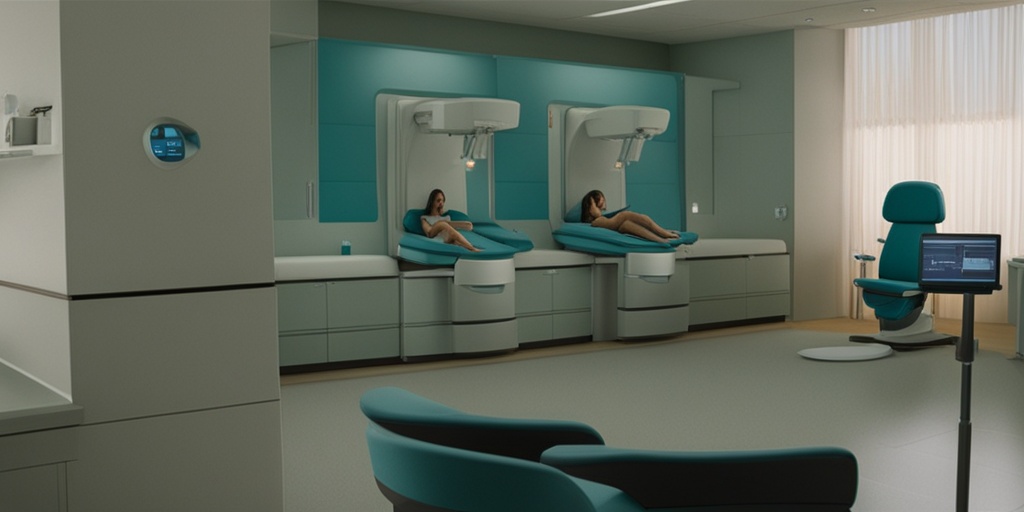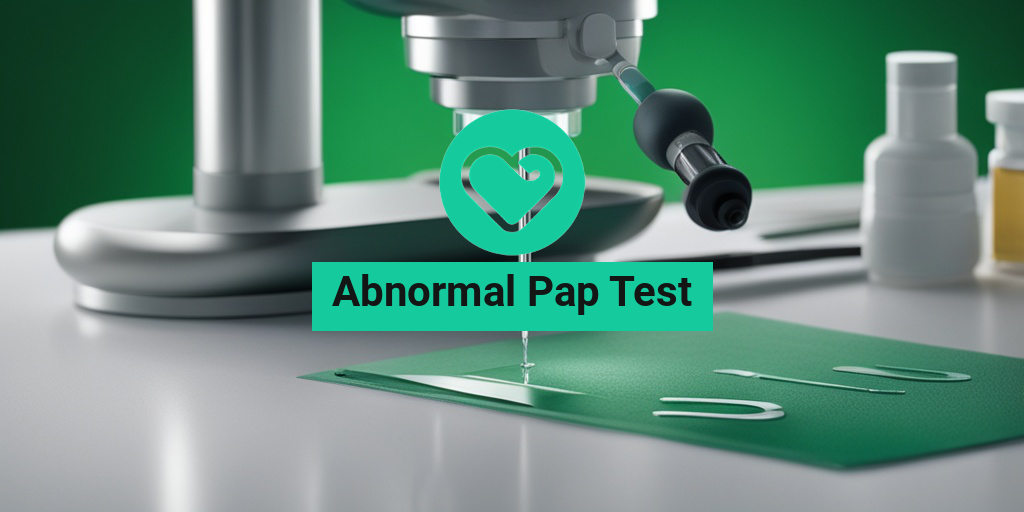“`html
What Is a Pap Test?
A Pap test, also known as a Pap smear, is a crucial screening procedure designed to detect changes in the cells of the cervix, which can indicate the presence of cervical cancer or precancerous conditions. This test is typically recommended for women starting at the age of 21, regardless of sexual history, and is an essential part of routine gynecological care.
How Is a Pap Test Performed?
During a Pap test, a healthcare provider will use a speculum to gently open the vagina and access the cervix. A small brush or spatula is then used to collect cells from the cervix. This process is quick, usually taking only a few minutes, and while some women may experience mild discomfort, it is generally not painful.
Why Is a Pap Test Important?
The primary purpose of a Pap test is to identify abnormal cell changes early, allowing for timely intervention. Early detection can significantly reduce the risk of developing cervical cancer, making this test a vital component of women’s health. Regular screenings can also help monitor any changes over time, ensuring that any necessary follow-up actions are taken promptly.
Abnormal Pap Test Explained
An abnormal Pap test result can be concerning, but it’s important to understand what it means and the next steps to take. An abnormal result indicates that some cells in the cervix appear atypical, which may suggest the presence of HPV (human papillomavirus) or other issues that require further investigation.
What Causes an Abnormal Pap Test?
Several factors can contribute to an abnormal Pap test result, including:
- Human Papillomavirus (HPV): This is the most common cause of abnormal Pap tests. Certain strains of HPV are known to increase the risk of cervical cancer.
- Inflammation or Infection: Conditions such as bacterial vaginosis or yeast infections can lead to changes in cervical cells.
- Hormonal Changes: Fluctuations in hormone levels, especially during menopause, can affect cervical cell appearance.
- Previous Treatments: If you have had treatments for cervical dysplasia or other conditions, this may also influence your results.
What Happens After an Abnormal Pap Test?
If your Pap test results are abnormal, your healthcare provider will likely recommend additional testing. This may include:
- HPV Testing: This test checks for the presence of high-risk HPV strains.
- Colposcopy: A procedure that allows the doctor to closely examine the cervix using a special magnifying instrument.
- Biopsy: If necessary, a small sample of cervical tissue may be taken for further analysis.
Understanding Your Results
Receiving an abnormal Pap test result can be overwhelming, but it’s essential to remember that not all abnormal results indicate cancer. In fact, many women experience abnormal results that resolve on their own or are due to benign conditions. If you find yourself in this situation, consider reaching out to a trusted healthcare provider for guidance and support.
Abnormal Pap Test and Pregnancy
For pregnant women, an abnormal Pap test can raise additional concerns. However, it’s crucial to communicate with your healthcare provider about the best course of action. In many cases, further testing may be postponed until after delivery, depending on the specific circumstances.
Resources for Support
Feeling anxious about an abnormal Pap test is completely normal. Seeking support from healthcare professionals and trusted resources can help alleviate concerns. Websites like Yesil Health AI provide evidence-based health answers and can guide you through understanding your results and the next steps.
In conclusion, while an abnormal Pap test can be alarming, it is a common occurrence and often manageable. Regular screenings and open communication with your healthcare provider are key to maintaining your cervical health. Remember, knowledge is power, and being informed about your health is the best way to take charge of your well-being! 🌸
“`

“`html
Common Causes of Abnormal Pap Test Results
Receiving an abnormal Pap test result can be alarming, but it’s essential to understand that various factors can contribute to these findings. Here are some of the most common causes:
1. Human Papillomavirus (HPV)
One of the leading causes of abnormal Pap test results is the presence of Human Papillomavirus (HPV). This sexually transmitted infection can lead to changes in cervical cells, which may be detected during a Pap test. While many HPV infections resolve on their own, some high-risk strains can lead to cervical cancer if left untreated.
2. Inflammation or Infection
Inflammation or infections, such as cervicitis or sexually transmitted infections (STIs), can also result in abnormal Pap test results. These conditions can cause changes in the cervical cells, leading to atypical findings.
3. Hormonal Changes
Hormonal fluctuations, particularly during menopause or pregnancy, can affect the cervical cells and result in abnormal test results. For instance, women who are undergoing hormone replacement therapy (HRT) may experience changes that could be reflected in their Pap tests.
4. Previous Cervical Procedures
If you’ve had previous cervical procedures, such as a LEEP (Loop Electrosurgical Excision Procedure) or cone biopsy, these can lead to changes in the cervical cells that may show up as abnormal on a Pap test.
5. Smoking
Smoking is another risk factor that can contribute to abnormal Pap test results. The harmful chemicals in tobacco can affect the cervical cells and increase the risk of cervical cancer.
6. Age
Age can also play a role in the likelihood of receiving an abnormal Pap test result. Women under 30 are more likely to have transient HPV infections, while those over 30 may have persistent infections that can lead to abnormal results.
Symptoms to Watch For
While many women may not experience symptoms after receiving an abnormal Pap test, it’s crucial to be aware of potential signs that could indicate a more serious issue. Here are some symptoms to watch for:
1. Unusual Vaginal Bleeding
Any unexpected vaginal bleeding, especially between periods or after intercourse, should be discussed with your healthcare provider. This could be a sign of cervical changes or other underlying conditions.
2. Pelvic Pain
Persistent pelvic pain or discomfort can be a symptom of various gynecological issues. If you experience this alongside an abnormal Pap test, it’s essential to seek medical advice.
3. Changes in Menstrual Cycle
Significant changes in your menstrual cycle, such as heavier or prolonged periods, can be a cause for concern. Keep track of any irregularities and discuss them with your doctor.
4. Pain During Intercourse
If you experience pain during sexual intercourse, it may indicate an underlying issue that needs to be addressed. This symptom can be associated with various conditions, including infections or cervical changes.
5. Unusual Discharge
Any changes in vaginal discharge, such as an increase in volume, a change in color, or an unpleasant odor, should be evaluated by a healthcare professional. These changes can indicate infections or other health concerns.
6. Symptoms of HPV
While many HPV infections are asymptomatic, some strains can cause genital warts or other symptoms. If you notice any unusual growths or changes in your genital area, consult your healthcare provider.
Being proactive about your health is crucial, especially when it comes to understanding abnormal Pap test results. If you experience any of these symptoms or have concerns about your test results, don’t hesitate to reach out to your healthcare provider for further evaluation and guidance. Remember, early detection and intervention can make a significant difference in your health outcomes! 🌸
“`

“`html
Diagnosis Process for Abnormal Pap Test
Receiving an abnormal Pap test result can be a source of anxiety and confusion for many individuals. Understanding the diagnosis process is crucial for managing your health effectively. Here’s a breakdown of what to expect after an abnormal result.
Understanding the Pap Test
A Pap test, or Pap smear, is a routine screening procedure designed to detect changes in the cervical cells that could indicate the presence of precancerous conditions or cervical cancer. The test is typically recommended for individuals with a cervix starting at age 21, and it is usually performed every three years. However, if your results come back abnormal, further evaluation is necessary.
Types of Abnormal Results
Abnormal Pap test results can vary widely. Some common types include:
- ASC-US (Atypical Squamous Cells of Undetermined Significance): This means that some cells appear abnormal, but it’s unclear if they are related to HPV.
- LSIL (Low-Grade Squamous Intraepithelial Lesion): Indicates mild changes in cervical cells, often associated with HPV.
- HSIL (High-Grade Squamous Intraepithelial Lesion): Suggests more significant changes that may lead to cervical cancer if untreated.
- Adenocarcinoma: Abnormal cells found in the glandular tissue of the cervix.
Initial Follow-Up Steps
After receiving an abnormal result, your healthcare provider will likely recommend additional tests to determine the cause and severity of the changes. These may include:
- HPV Testing: This test checks for the presence of high-risk HPV types that are known to cause cervical cancer.
- Colposcopy: A procedure that uses a special microscope to closely examine the cervix and identify any abnormal areas.
- Biopsy: If abnormal areas are found during colposcopy, a small sample of tissue may be taken for further analysis.
Emotional Impact and Support
It’s completely normal to feel anxious or overwhelmed after an abnormal Pap test. Seeking support from friends, family, or a mental health professional can be beneficial. Online communities, such as those found on platforms like Reddit, can also provide valuable insights and shared experiences from others who have faced similar situations. Remember, you are not alone! 🤗
Follow-Up Tests and Procedures
Once you have undergone the initial follow-up tests, your healthcare provider will discuss the results with you and recommend the next steps. Here’s what you might expect:
Understanding Your Results
The results of your follow-up tests will help determine the appropriate course of action. If HPV is present, your doctor may recommend:
- Regular Monitoring: For low-grade abnormalities, your doctor may suggest a watch-and-wait approach with regular Pap tests and HPV testing.
- Treatment Options: For high-grade lesions, treatment may be necessary. Options include:
- LEEP (Loop Electrosurgical Excision Procedure): A procedure that removes abnormal tissue from the cervix.
- Cone Biopsy: A larger sample of cervical tissue is removed for further examination.
Post-Treatment Care
After treatment, follow-up appointments are crucial to ensure that the abnormal cells have been effectively removed and that no new abnormalities have developed. Your healthcare provider will likely schedule:
- Regular Pap Tests: Typically every 6 to 12 months for the first few years after treatment.
- HPV Testing: To monitor for the presence of high-risk HPV types.
Living with an Abnormal Pap Test Result
Receiving an abnormal Pap test result can be daunting, but it’s important to remember that most abnormalities are not cancerous and can be effectively managed. Staying informed, maintaining open communication with your healthcare provider, and adhering to follow-up recommendations are key to ensuring your health and peace of mind. 🌼
“`

“`html
Treatment Options Available
Receiving an abnormal Pap test result can be a source of anxiety and confusion. However, it’s important to remember that an abnormal result does not necessarily mean you have cancer. There are various treatment options available depending on the specific findings of your test and your overall health. Let’s explore some of these options.
Understanding the Results
Before diving into treatment options, it’s crucial to understand what your abnormal Pap test result means. Abnormal results can indicate several conditions, including:
- Low-grade squamous intraepithelial lesion (LSIL): Often resolves on its own.
- High-grade squamous intraepithelial lesion (HSIL): May require further evaluation and treatment.
- Atypical squamous cells of undetermined significance (ASC-US): May need additional testing for HPV.
Follow-Up Procedures
After an abnormal Pap test, your healthcare provider may recommend follow-up procedures to determine the next steps. These may include:
- Colposcopy: A procedure that uses a special microscope to examine the cervix more closely.
- Biopsy: A small sample of cervical tissue may be taken for further analysis.
- HPV Testing: To check for the presence of high-risk HPV types.
Treatment Options
If further testing confirms the presence of precancerous cells or cervical cancer, treatment options may include:
- Watchful Waiting: In cases of LSIL, doctors may recommend monitoring the situation without immediate treatment.
- LEEP (Loop Electrosurgical Excision Procedure): A common procedure to remove abnormal cervical tissue.
- Cone Biopsy: A more extensive procedure that removes a cone-shaped section of the cervix.
- Hysterectomy: In severe cases, the removal of the uterus may be necessary.
It’s essential to discuss these options with your healthcare provider to determine the best course of action based on your individual circumstances. Remember, early detection and treatment can significantly improve outcomes! 🌟
Preventive Measures and Screening Tips
Prevention is always better than cure, especially when it comes to cervical health. Regular screenings and preventive measures can help reduce the risk of developing cervical cancer. Here are some effective strategies:
Regular Screening
One of the most effective ways to prevent cervical cancer is through regular Pap tests. The American College of Obstetricians and Gynecologists recommends:
- Starting Pap tests at age 21.
- Women aged 21-29 should have a Pap test every three years.
- Women aged 30-65 should have a Pap test combined with HPV testing every five years or a Pap test alone every three years.
HPV Vaccination
The HPV vaccine is a powerful tool in preventing cervical cancer. It protects against the types of HPV that most often cause cervical, vaginal, and vulvar cancers. The vaccine is recommended for preteens aged 11 to 12 but can be given up to age 26. If you are older than 26, consult your healthcare provider about the vaccine’s benefits for you. 💉
Healthy Lifestyle Choices
Maintaining a healthy lifestyle can also play a significant role in reducing your risk of cervical cancer. Consider the following:
- Quit Smoking: Smoking is linked to an increased risk of cervical cancer.
- Healthy Diet: A diet rich in fruits, vegetables, and whole grains can boost your immune system.
- Regular Exercise: Staying active helps maintain a healthy weight and reduces cancer risk.
Be Aware of Symptoms
While many women with abnormal Pap tests may not experience symptoms, it’s essential to be aware of any unusual changes in your body. Symptoms to watch for include:
- Unusual vaginal bleeding.
- Pain during intercourse.
- Unexplained pelvic pain.
If you notice any of these symptoms, consult your healthcare provider promptly. Early intervention can make a significant difference! 🌼
“`

“`html
Frequently Asked Questions about Abnormal Pap Test
What does an abnormal Pap test result mean?
An abnormal Pap test result indicates that there are changes in the cells of the cervix. These changes can be caused by various factors, including infections, inflammation, or precancerous conditions. It is essential to follow up with your healthcare provider for further evaluation.
What are the next steps after an abnormal Pap test?
After receiving an abnormal Pap test result, your doctor may recommend additional tests, such as:
- Colposcopy: A procedure to closely examine the cervix.
- HPV testing: To check for the presence of high-risk HPV types.
- Biopsy: To take a small sample of cervical tissue for further analysis.
Can an abnormal Pap test occur after menopause?
Yes, it is possible to receive an abnormal Pap test result after menopause. Hormonal changes can affect cervical cell health, and it is crucial to discuss any abnormal results with your healthcare provider.
What if I have an abnormal Pap test but a negative HPV test?
Having an abnormal Pap test with a negative HPV test can occur. This situation may indicate that the cell changes are not related to HPV. Your doctor will guide you on the appropriate follow-up steps based on your specific results.
What are the common causes of an abnormal Pap test?
Several factors can lead to an abnormal Pap test, including:
- Infections (e.g., bacterial vaginosis, yeast infections)
- Inflammation
- Hormonal changes
- Precancerous changes (CIN)
Is it safe to get pregnant after an abnormal Pap test?
While an abnormal Pap test does not directly affect your ability to conceive, it is essential to discuss your results with your healthcare provider. They can provide guidance on any necessary treatments or monitoring during pregnancy.
How often should I have a Pap test if I have had an abnormal result?
The frequency of Pap tests after an abnormal Pap test result will depend on the specific findings and your healthcare provider’s recommendations. Generally, follow-up tests may be scheduled every 6 to 12 months until your results return to normal.
Where can I find support after an abnormal Pap test?
Support is available through various resources, including:
- Your healthcare provider
- Support groups (online and in-person)
- Educational websites focused on women’s health
Connecting with others who have experienced similar situations can be beneficial. 🌼
“`




